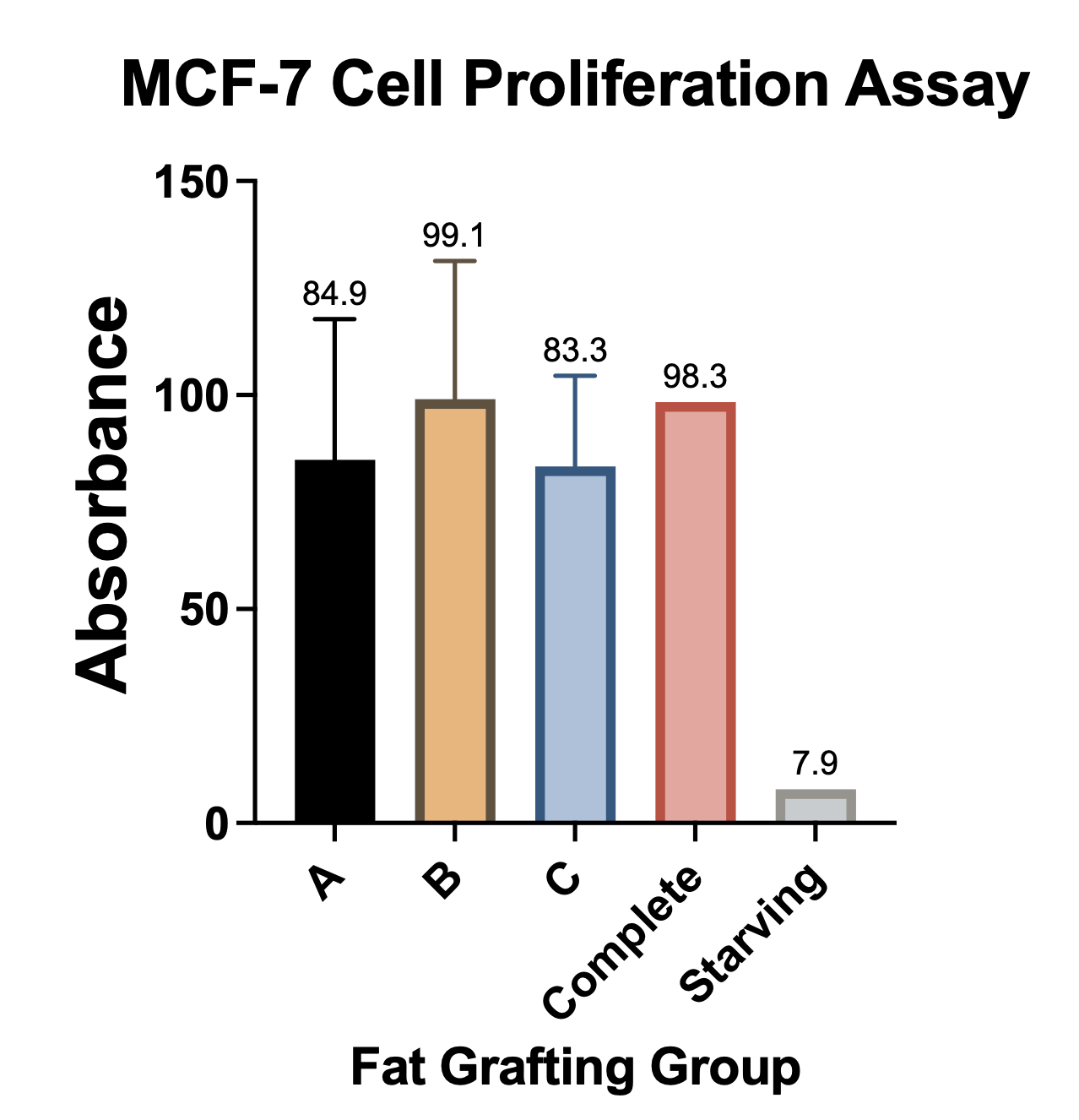Filling in the Blanks: MCF-7 Breast Cancer Cell Proliferation Trends in Fat Grafting Lipoaspirate Conditioned Media
Yunchan Chen, Nicholas A. Vernice, Grant G. Black, Tara Chadab*, Kristy A. Brown, David Otterburn
Weill Cornell Medicine, New York, NY
Autologous fat grafting is a common technique used to enhance aesthetic outcomes in post-mastectomy breast reconstruction patients. Adipokines are hormones secreted by adipose tissue that play a critical role in regulating metabolic processes and the immune system. However, dysregulated adipokine secretion and signaling can contribute to the development and progression of cancer by promoting angiogenesis, altering the immune response, and inducing the epithelial mesenchymal transition. We aimed to assess how breast cancer cells behave in conditioned media derived from fat grafting lipoaspirates, and gain a better understanding of the potential interactions that may occur within the tumor microenvironment.
A prospective randomized control trial that enrolled post-breast cancer reconstruction patients is conducted at our center. Subjects are randomized into one of three fat grafting methods (active filtration, low pressure decantation, and standard suction decantation) in a 1:1:1 ratio. Conditioned media is created using 20% of patient lipoaspirate secretome and 80% starving media. MCF-7, a human ER/PR+ breast cancer cell line, growth in conditioned media is assess using CyQUANT.
Across all three treatments, the breast cancer cells incubated in conditioned media displayed similar growth trends as those in complete media, which is enriched for cell growth (p>0.05). MCF-7 cell behavior in conditioned media differed significantly from their proliferation patterns when serum starved in 100% starving media (p < 0.05). However, the three techniques did not lead to significantly different MCF-7 cell proliferation patterns between each other.
Unlike mastectomy patients, who achieve immediate regional disease control after resection, breast conservation therapy (i.e., lumpectomy) patients may not be optimal candidates for fat transplantation until the completion of their treatment course, given the cancer cell proliferation patterns observed in patient lipoaspirate conditioned media in-vitro.
Back to 2023 Abstracts


